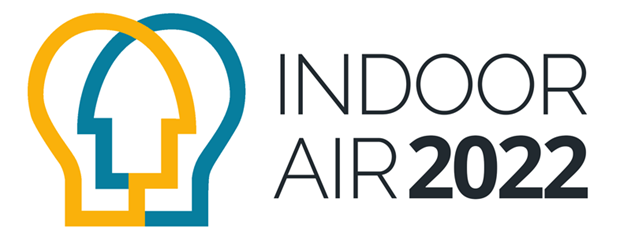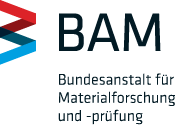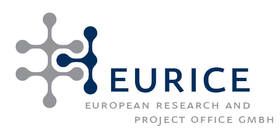 Indoor Air is the leading international conference, organized by ISIAQ, dedicated to Indoor Air Quality covering all aspects from analytics to sensor technology.
Indoor Air is the leading international conference, organized by ISIAQ, dedicated to Indoor Air Quality covering all aspects from analytics to sensor technology.As part of the
is organized prior to the conference on June 11 and 12.
LMT will contribute with
both dedicated to VOC measurements with low-cost sensor systems.
International PhD course:
Current and future Air Pollution management
– Perspectives on new sensor technologies
A portASAP Training School on Low Cost Air Quality Sensors
organized by Aarhus University in cooperation with Saarland University and Aristotle University Thessaloniki.
Date and duration
Week 36: September 2, 2019 @ 09:00 – September 6, 2019 @ 13:00. Duration of 5 days.
Venue
Aristotle University, Department of Mechanical Engineering, Thessaloniki, Greece (campus map). The training school will take place at the meeting room of the Faculty of Engineering.
Aim
Portable and affordable environmental sensors are becoming popular in Citizen Science activities and are also gaining ground in scientific projects. The recent publication of the WMO report on “Low-cost sensors for the measurement of atmospheric composition: overview of topic and future applications” has signalled the importance of Low Cost Air Quality Sensors (LCAQS) as well as the high interest of the scientific community, city authorities and citizens to their development and application. Such sensor technologies can provide comprehensive information concerning a wide range of pollutants with high spatial and temporal resolution, providing valuable insight concerning the understanding and dynamics of urban air quality as well as of indoor air. Furthermore, low cost sensors can also provide information about acute environmental pollution allowing fast identification of sources and threats. On the other hand, their limited accuracy and their lack of performance when compared to reference instruments pose considerable challenges toward their improvement to achieve acceptance in various application fields.
The school aims at providing fundamental training and expertise in the area of urban air quality monitoring and modelling, for better and more effective LCAQS design, development, calibration and use. LCAQS technologies and basic functionalities will also be addressed. The training school will address the technology chain from sensor elements via sensor systems and calibration to their use for environmental services incl. combination with modelling.
Expected results
The main result will be the knowledge shared and the collaboration potential that will be increased between the training school participants. Students will
Further information
International training course:
Low-cost Environmental Monitoring
– from sensor principles to novel services
organized by Saarland University, Aarhus University and Aristotle University Thessaloniki in cooperation with BAM and Eurice GmbH.
April 9 - 10, 2019, Berlin
Bundesanstalt für Materialforschung und -prüfung (BAM)
Branch Adlershof
Building 8.05, Richard-Willstätter-Straße 11, 12489 Berlin
Download the flyer for more information and the complete program (printer friendly version),
For all details including online registration please go to netmon.eurice.de
Purpose and background
Environmental monitoring today is based on fixed measurement stations containing sophisticated analytical equipment to achieve a high data quality. However, due to the high cost for investment and maintenance only a limited number of pollutants (typ. CO, NOx, SO2, ozone, PM10, PM2.5, BTX, tVOC) are monitored at very few locations. Furthermore, not only is the spatial resolution limited but temporal resolution is coarse, with measurements typically providing hourly values at best. Thus, the fundamental information available on air quality (AQ) today does not meet the demands of many citizens or the requirements of advanced environmental information (EI) services and city infrastructure management. The current status does not reflect the increasing needs for well monitored ‘smart cities’, requiring e.g. real-time traffic management, identification of clean ‘green’ areas and routes in cities, specific information for children, elderly or citizens affected by certain pollutants or allergens, temporal air quality profiles for optimisation of ventilation strategies for improved indoor air quality, and, last but not least, for educating citizens about their local environment and the impact of their everyday life habits to their quality of life.
Novel low-cost sensor technologies are poised to support a paradigm shift by allowing ubiquitous ambient pollution monitoring with high spatiotemporal resolution available at every person´s fingertips – either through environmental information websites backed by stationary and mobile sensor networks or quite literally with sensor technology being integrated into mobile devices and supported by Internet of Things (IoT) technologies. The availability of such sensor data cultivates a fertile environment for the development of novel information services addressing personalised citizen needs as well as city planning and management and environmental decision making requirements. The seminar will provide an overview over the state-of-the-art in environmental monitoring today and over sensor and modelling technologies for low-cost ubiquitous monitoring as well as indicate novel EI service characteristics and future markets based on these technologies.
Seminar benefits
Participants will learn about the main aspects of air pollution, its effects and associated costs as well as the current status of environmental monitoring technologies with their pros and cons.
Then, an overview over modern low-cost sensor principles, operating modes and data evaluation strategies as well as characterization and calibration is given with clear indications on advantages and limitations compared to existing monitoring stations. Examples will be given for various benchmark applications covering different fixed and mobile, especially drone-based, sensor solutions for pollution and odour monitoring.
Finally, participants will learn how these sensor solutions can be utilized to develop novel environmental services for municipalities, companies and citizens. The potential for citizen science solutions will be discussed as well as service design principles and market penetration potentials.
Who should attend?
The seminar addresses a wide range of participants from industry and municipalities, e.g., sensor companies providing solutions for environmental monitoring, developers and operators of existing monitoring stations to learn about new sensor technologies, network providers and app developers offering new applications and advanced services, municipality representatives interested in green city solutions as well as citizen initiatives aiming at improved air quality information. The seminar also provides contacts for future R&D collaborations in this field.
A step further?
Participate in the Workshop: Setting standards for low cost Air Quality sensors
Thursday, April 11, 2019 - @ BAM in Berlin
further information: www.lmt.uni-saarland.de/setting-standards.
Download 1st announcement
Scientific instructors
|
Environmental monitoring:
|
Smart sensor systems:
|
Data modelling & services:
|
Download flyer (printer friendly version)
Organized in cooperation with
 |
 |
Thursday, April 11, 2019 @ BAM in Berlin
Bundesanstalt für Materialforschung und -prüfung (BAM)
Branch Fabeckstraße, building 89, Unter den Eichen 44-46, 12203 Berlin
How to reach BAM
Recent years have seen various activities worldwide aimed at introducing low-cost sensors for monitoring of air pollution and air quality (AQ). These cover sensors for particulate matter (PM) as well as for hazardous gases like CO, NOx, ozone, SO2 as well as carcinogenic VOCs like formaldehyde and benzene, but also odour nuisance monitoring and indicator gases for air quality such as CO2, H2 or tVOC (total VOC), the latter especially for indoor air quality (IAQ).
A primary concern in this field is the data quality or simply the question: can low-cost sensors actually provide relevant information? This fundamental problem has to be addressed with respect to the different fields of application, i.e. outdoor air quality, indoor air quality and odour monitoring, due to the different references available today.
The organizers of this workshop believe that low-cost sensors can indeed provide additional insights, information and services if certain standards are met. The aim of this workshop is to reflect current standardization activities, identify gaps and to potentially initiate new activities for addressing critical gaps.
The workshop will set the scene by reflecting the state-of-the-art in low-cost AQ sensors, the importance of standardization as well as existing standards (European AQ directive, ISO 16000 for IAQ). It will then present current activities and first results of various working groups:
A specific focus of the workshop will be the discussion of standards for IAQ sensors. This field has seen a tremendous effort from many industrial players to provide novel “digital” gas sensors allowing ubiquitous AQ monitoring using mobile phones and IoT devices. However, tests outlined in ISO 16000 part 29 (test methods for VOC detectors) seem inadequate for providing a suitable frame of reference for manufacturers and end users alike.
In the discussion, we want to reflect similarities and differences between the various application fields to identify possible common goals and requirements, but also specific standards which should allow developers and manufacturers a common frame of reference. Finally, a quality standard helping users – not only companies but especially citizens – understand the value and limitations better to make full use of low-cost sensor data is required for achieving better acceptance and to open up new markets for AQ sensor systems.
Download Invitation and Program
To register, send an email to:
This workshop is organized in conjunction with the international training course
“Low-cost Environmental Monitoring – from sensor principles to novel services”,
April 9-10, 2019 @ BAM. Further information

International PhD course:
Current and future Air Pollution management
– Perspectives on new sensor technologies
organized by Aarhus University in cooperation with Saarland University and Aristotle University Thessaloniki.
Cost has been reduced to DKK 4846 (~€ 650,00) incl. accomodation at Sandbjerg mansion and full board for the course (excl. VAT).
September 2 - 7, 2018, Sandbjerg Mansion
Objectives of the course
The objective of the course is to introduce the students to state-of-the-art in low cost sensors for air pollution measurements, and to do so in light of possibilities and shortcomings. In order to set the scene, the course will include an introduction to the physical and chemical processes governing air pollution loads and levels in the ambient environment. Likewise, on introductory level, the students will receive a basic understanding of the applied routine measuring techniques and transport-chemistry models used in state-of-the-art research and management of air quality and the associated effects on health and environment. The course will include training of the students’ in presenting research in the form of posters and short oral presentations at international workshops and conferences.
Learning outcomes and competences
At the end of the course, the student should be able to:
Compulsory programme
The lectures take place as a five days intensive course. Prior to the course the students are expected to have read the listed literature. Also prior to the course, the students are expected to prepare posters showing their own research. During the course the students are expected to present these posters to each other in posters in two poster sessions. Furthermore, the students will form groups during the course and carry out measurements with low-cost sensor devices and prepare a short report about these measurements. After the course, the students need to produce a written report with essays on various topics as well as all calculation exercises from the course. Exercises may be solved by hand, by Excel or by programming. In the material provided for the students there will be a short introduction to FORTRAN programming and links to a free of charge GFortran compiler. However, there are no demands regarding how the students solve the exercises given during the course. In the reports, the students are expected to add explanatory text to demonstrate their understanding of the exercises. Details on the exercises are given in the course description.
Registration
Deadline for registration is 1 August 2018.
Online registration: http://auws.au.dk/Sandbjerg18_PhdCourse
The cost of DKK 4846 (~650 €) covers the course fee as well as accomodation (5 nights) at Sandbjerg Mansion and full board during the course.
Scientific instructors
|
Environmental monitoring:
|
Smart sensor systems:
|
Data modelling & services:
|